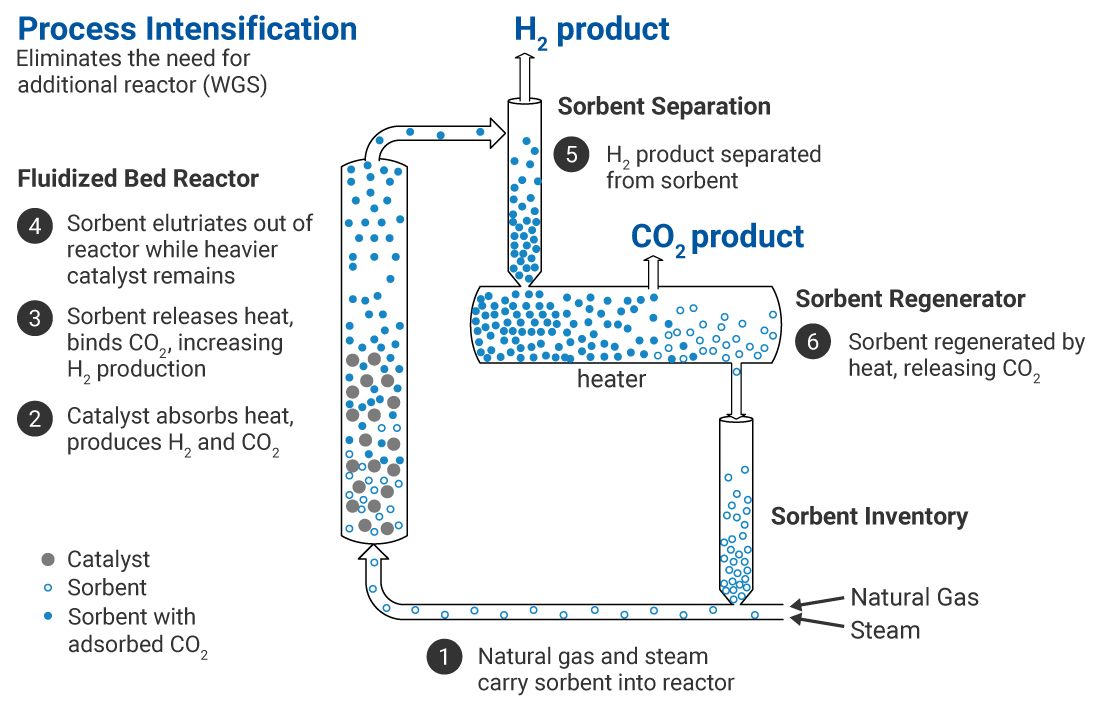Higher carbon capture potential, lower capital cost, and smaller footprint
GTI Energy’s hydrogen generator technology offers a highly efficient pathway to produce low carbon hydrogen (H2) with an exceptionally low levelized cost of hydrogen (LCOH). This comes from process intensification which results in a dramatic reduction in CAPEX and OPEX. Based on sorbent enhanced reforming (SER), the process uses chemistry to provide the necessary heat in-situ, instead of external heating. This enables elimination of major equipment and reduction of catalyst volume, creating a much smaller footprint than conventional steam methane reforming (SMR) technology. The use of SER chemistry yields two separate product streams, hydrogen, and CO2, without the need to export steam or incorporate separation equipment. The existing process design enables carbon capture rates greater than 98% while achieving very low carbon intensity when compared to traditional processes, such as SMR with carbon capture or autothermal reforming.
The key economic and performance drivers have been confirmed through studies by independent third parties, including the U.S. Department of Energy (DOE), a major U.S. engineering, procurement, and construction firm, and a major international energy company.
The design is scalable to very large H2 production rates (e.g., 90 MMSCFD [216,000 kg/day]) with the attendant economies of scale, with single or multiple modules.
GTI Energy has completed pilot testing, under DOE funding, which verified catalyst stability and successfully demonstrated SER chemistry and process operation. A large pilot plant (approx. 1 tonne per day hydrogen capacity), at a dedicated site at Cranfield University in the UK will produce clean hydrogen at scale with inherent carbon capture.
A pilot plant at GTI Energy’s Des Plaines campus validated engineering and technology predictions and demonstrated a disruptive breakthrough: our generation technology can make high-purity hydrogen while at the same time capturing and delivering high-purity CO2. Results demonstrate a pathway to affordable, industrial-scale renewable hydrogen, adding a vital resource to the clean fuel mix.
The technology is scalable from very small scale to very large industrial scale. Results from a major energy company due diligence study concluded an 18% improvement in efficiency, and a 30% lower cost of hydrogen over conventional technology.

Learn More
Contact the energy experts today
